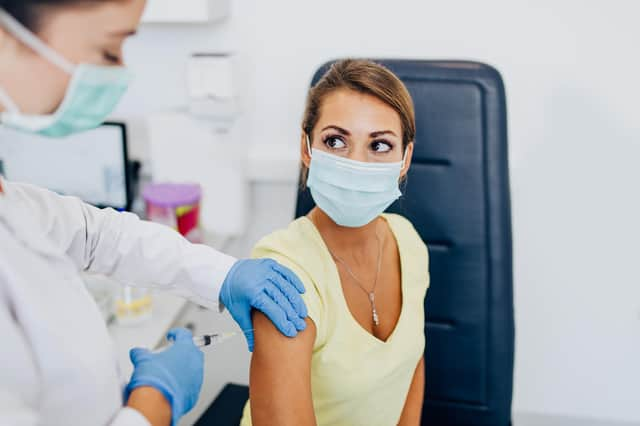Covid vaccine: ANALYSIS: Why hopes of 'return to normal' by next Spring might be a recipe for disappointment


Pharmaceutical giant Pfizer and German biotechnology company BioNTech have said their vaccine will prevent 90 per cent of people from getting Covid-19, according to early trial data.
The news was welcomed as a “great day for humanity” by the head of Pfizer, and sent stock markets around the world into paroxyms. Alongside the expected jump for Pfizer and BioNTech, airline shares also shot up and lockdown winners Zoom and Ocado went down, in desperate anticipation of an imminent return to normal.
Advertisement
Hide AdAdvertisement
Hide AdProfessor Sir John Bell, an eminent immunologist and Regius Professor of Medicine at Oxford University who is part of the UK vaccine taskforce, went so far as to tell the BBC that life will begin “returning to normal” by spring 2021, in one of the most optimistic reactions to the news.
Pfizer and BioNTech said that up to 50 million doses could be manufactured this year, and a further 1.3 billion in 2021.
Nicola Sturgeon welcomed the news as “light at the end of the tunnel”, and Professor Devi Sridhar, Chair of Global Public Health at Edinburgh University, said she was “feeling upbeat” about the vaccine, but that it has its challenges.
One of these is that the Pfizer vaccine must be transported at minus 80 degrees Celsius, although as Sir John Bell pointed out, it once a vaccine is approved issues such as this will likely be ironed out.
Another is that the UK Government has secured enough doses for just 20 million of a 65 million population, with enough for five million people before the end of the year if the vaccine is approved. Health Secretary Jeane Freeman said Scotland would receive doses proportionate to population, so that's enough for 400,000 Scots.
However, not everyone will need to be immunised for the vaccine to be effective, and it’s likely there will be other vaccines on offer before long as well.
Guidance from the Joint Committee on Vaccination and Immunisation suggests broadly that health and social workers will be given highest priority along with those over 80, followed by the rest of the population in descending age order, with those under 50 the lowest priority.
More difficult to overcome will be the challenge of actually administering a widespread vaccine. One look at the chaos of flu jabs across Scotland is enough to realise that mass immunisation is no easy feat, and flu jabs are given in single doses.
Advertisement
Hide AdAdvertisement
Hide AdThe Pfizer vaccine requires two doses, three weeks apart, meaning double the logistical capacity needed. The trials have also shown that it is 90 per cent effective seven days after the second dose, and Ugur Sahin, Chief Executive of BioNTech, said he expected immunity to last about a year.
Sir John himself warned in July that Covid-19 could be with us “forever”, and that a vaccine is unlikely to last for a long time, instead leading to waves of disease and vaccination.
Painful as it is to admit, pinning our hopes on a “return to normal” by spring is a recipe for disappointment and frustration. This news from Pfizer and BioNTech should be recognised for what it is: a wonderful, positive leap forward in what is nonetheless a long road.